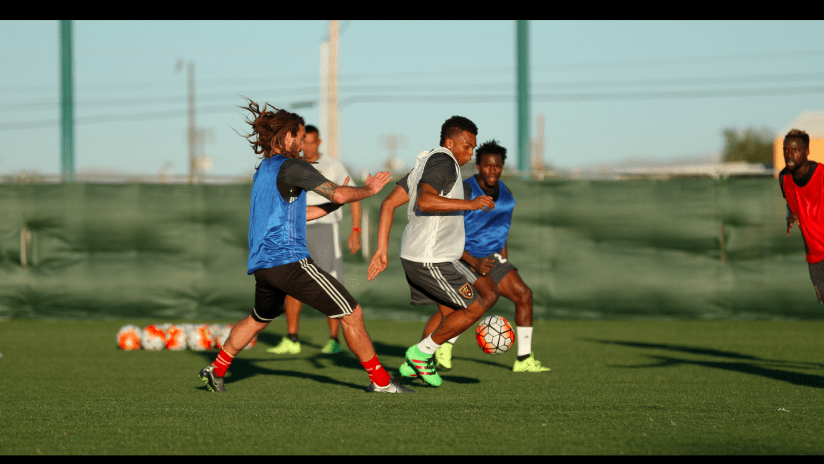The childhood dream of a ‘true’ aspiring athlete is his best friend and his biggest enemy.
I’m not talking about the kid who played sports because his friends did. I’m not referring the kid who was naturally gifted but lacked the dedication to fulfill his potential, either.
I want to talk about the athlete who is willing to do whatever it takes to “make it”.
The athlete who is obsessed with succeeding, regardless of his natural ability. This is the athlete who is the first one to show up to practice and the last one to leave. The athlete who doesn’t see the sacrifice in skipping social events to get an extra practice session in alone. The 24/7 competitor who can’t imagine themselves without their sport.
The majority of professional athletes have known since they were toddlers they belonged in the sports environment. They grew up with posters of their idols on their bedroom walls, and were more likely to show up to school with a jersey on than a polo.
I’ve been that kid since kindergarten, and from the time I could kick a ball, I’ve been defined by my sport. Even at 20 years old, nothing has changed.
It’s easy for a sport to be an athletes best friend.
The love of the game alone brings a joy that can hardly be matched by anything else. It gives a sense of purpose for many who otherwise don’t know where life will take them. There’s a reason people refer to the court or field being a place of refuge when life is tough.
What isn’t as obvious is the toll your love, your obsession, your everything can have on you.
Before I go on and make this statement, I want you to understand the next part sounds extreme. I’m fully aware. You might think I’m being overly dramatic. Maybe I’m too young and immature to see the bigger picture. I won’t argue with you.
As that kid, here is my perspective on failure … the moment an athletes best friend, the one he truly loves, turns into his worst fear & his enemy.
For the obsessive athlete, failure is like dealing with the death of a loved one.
Almost two years ago I was given the worst news an athlete can get. I sat in Dr. Andrew Cooper's office and was told that I needed microfracture surgery on my left knee. I would be out for eight to ten months rehabbing a surgery that came with no guarantees of success. My first year as a professional soccer player, and maybe my career, was over before it had even started.
I had failed.
I left the doctor's office with my head held low ignoring any comments made to me on the way out. I got to my car and sat in it for forty minutes before even turning it on. I punched the steering wheel over and over again, and am probably lucky I didn't break my hand.
Holding back tears I sent my parents a text message reading "Need surgery on my knee, out for 8 months, don't want to talk yet."
Anybody who would've seen me over the next couple days and cast judgement on who I am as a person would've had nothing but negative things to say. I ignored people trying to talk to me in the hallway and I didn't care about anyone's problems outside of my own. I barely picked up the phone calls of my closest friends and family.
The hard working and polite kid I pride myself on trying to be was nowhere to be found.
It was the most angry/sad/confused I had been since I lost my grandparents in an accident five years prior, and I didn't know how to handle it.
Here’s the thing, nobody will ever tell you that there is a right or wrong way to deal with death. For some it is a miserable process that makes us want to shut off from the world completely. For others, it is easier to find the good times and cherish the memories that were made along the way.
Either way, it is not something we can truly control. There isn’t a switch to be flipped. We simply react one way or another, and no matter how many people you have around you giving support, you often feel alone. We all understand that.
What isn’t as universally understood is that for the obsessive athlete, failure can feel identical.
At different stages and in different levels, failure can either feel like the end of all hope in happiness, or as a time to reflect and feel appreciative. We cannot control how we feel. It hits us all differently. And all the advice on how to react falls on deaf ears, no matter the source.
The attachment we have to our dreams is the same attachment we have to the people we love, and our reaction to the severance of that attachment is equally unpredictable. Naturally there are people who handle it more gracefully than others, but that should not be an indictment against those who have a hard time with it.
I’m not arguing that after every loss an athlete has the right to mope around and act like the sky is falling, or be blatantly disrespectful to those around them.
I am asking however for a half second of understanding after the BIG failures.
The dream crushing failures.
The ‘not wanting to talk to anyone because you need knee surgery' type of failures.
The Super Bowl failures.
The getting knocked unconscious on national TV failures.
We don’t judge a person’s character based on how they react after the death of a loved one, and unless they quit, we shouldn’t judge an athlete’s character based on how they react to having their dreams crushed either.
Also pronounced, “In Defense of Cam Newton’s Press Conference”
- JA70

